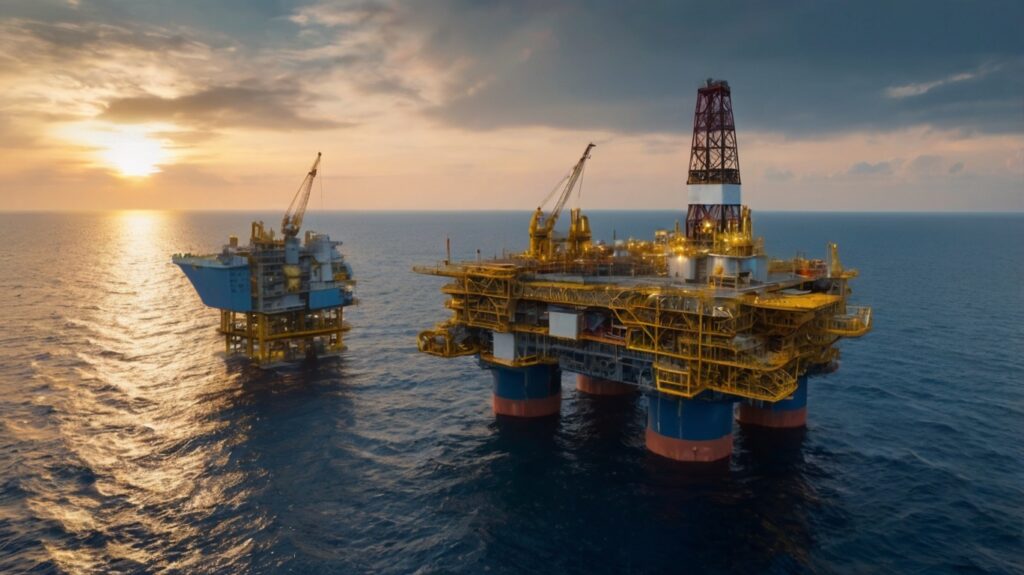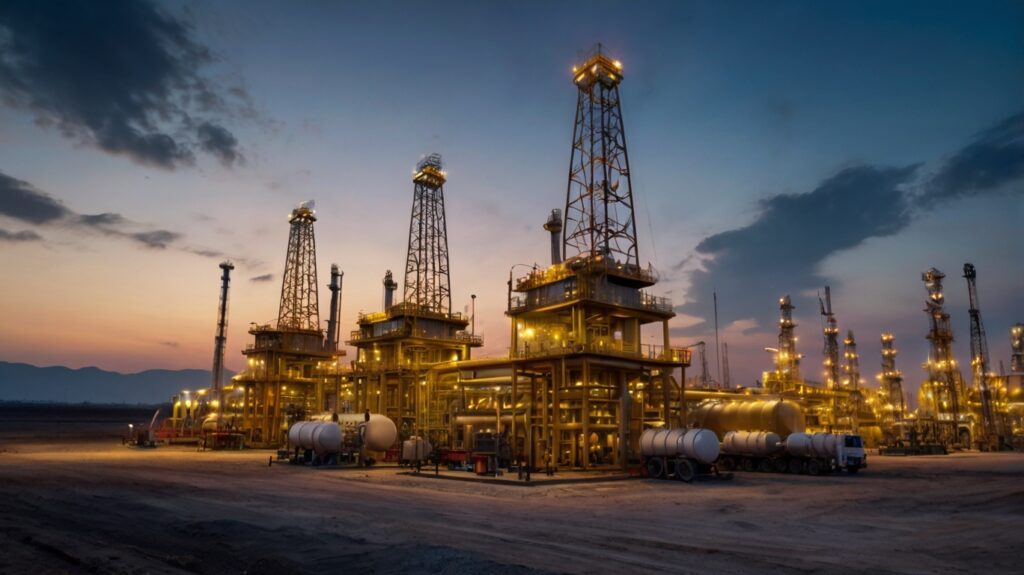Catering services for gas and oil field projects, both offshore and onshore, require specialized expertise to meet the unique challenges of remote and often harsh environments. These services are designed to provide nutritious, high-quality meals that cater to the diverse needs of workers, ensuring their well-being during long shifts. Offshore catering demands efficient planning and logistics due to the isolation of rigs, where timely delivery and food safety are paramount. Onshore, catering must adapt to varying climates and conditions while maintaining consistent service. By offering tailored menus, accommodating cultural preferences, and ensuring strict hygiene standards, catering services in these projects support productivity and boost morale in demanding work settings.
Rules for Catering Services in Offshore Gas and Oil Field Projects:

- Strict Hygiene Standards: Follow stringent food safety protocols, including proper food handling, storage, and preparation, to prevent contamination and ensure worker health.
- Nutritional Balance: Provide meals that are balanced, high in energy, and nutritious to meet the demands of physically intensive work.
- Menu Diversity: Offer a variety of culturally appropriate and diverse meals to accommodate the dietary needs and preferences of a multinational workforce.
- Efficient Logistics: Ensure timely and secure delivery of food supplies, considering the remoteness of offshore sites, and plan for emergency rations in case of delays.
- Waste Management: Implement a robust waste disposal system to manage food waste in an environmentally friendly manner, adhering to offshore environmental regulations.
- 24/7 Availability: Ensure round-the-clock catering services to support various shift patterns and the continuous operation of offshore facilities.
- Health and Safety Compliance: All kitchen staff must comply with safety regulations, including the use of personal protective equipment (PPE) and awareness of emergency protocols specific to offshore environments.
- Contingency Planning: Maintain contingency plans for supply disruptions due to weather conditions or other logistical challenges.
- Regular Audits: Conduct regular health, safety, and quality audits to ensure compliance with offshore catering standards and regulations.
- Staff Training: Ensure all catering staff are trained in offshore safety, emergency response, and food safety standards, adapting to the unique conditions of offshore work.
In offshore gas and oil field projects, reliable and high-quality catering services are essential for maintaining worker morale, health, and productivity, making them a vital support system in these demanding environments.
Rules for Catering Services in Onshore Gas and Oil Field Projects:

- Adherence to Health and Safety Standards: Ensure compliance with national and local food safety regulations, including proper food handling, storage, and preparation techniques to prevent contamination.
- Nutritional Requirements: Provide well-balanced, energy-rich meals tailored to meet the physical demands of field workers, supporting their health and stamina during long shifts.
- Menu Variety: Offer a diverse selection of meals to cater to dietary restrictions, cultural preferences, and allergies, ensuring all workers are accommodated.
- Efficient Logistics and Delivery: Maintain consistent and timely food delivery to onshore locations, even in remote or difficult-to-access areas, ensuring freshness and quality.
- Waste Management and Environmental Compliance: Implement effective waste disposal practices, adhering to environmental regulations and minimizing ecological impact at onshore sites.
- Adaptability to Climate Conditions: Ensure food safety and storage methods are adaptable to various climate conditions such as extreme heat or cold, which may affect food quality.
- Support for 24/7 Operations: Provide round-the-clock catering to align with continuous operations and shift patterns in onshore field projects.
- Hygiene Practices: All kitchen and serving staff must follow strict hygiene protocols, including the use of appropriate personal protective equipment (PPE) and regular health check-ups.
- Contingency Planning: Develop plans to manage disruptions in supply chains due to weather, logistical challenges, or unforeseen events, ensuring uninterrupted service.
- Staff Training: Train catering staff in safety, first aid, and the specific health regulations required for working in high-risk onshore industrial environments.
In onshore gas and oil field projects, dependable catering services play a critical role in ensuring the well-being, energy, and satisfaction of the workforce, directly contributing to the efficiency and success of daily operations.